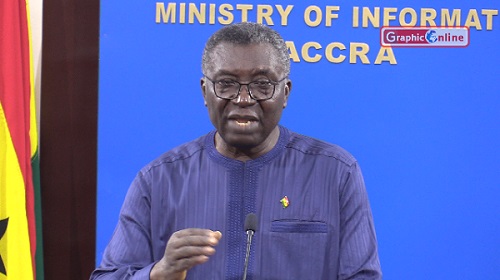
Immediate ban of plastic materials in Ghana not the best - Minister
The Minister of Environment, Science, Technology and Innovation (MESTI), Professor Kwabena Frimpong-Boateng, has cautioned Ghanaians to be circumspect in their demand for a quick ban of plastic products in the country.
According to the Minister, there was the need for necessary interventions and policies to be instituted before the country could take an outright decision to ban the manufacture and use of plastic materials in the country.
Advertisement
“In managing plastics, we think that a wholesale ban of plastic will not be in the interest of Ghana because plastics are used everywhere from the hospitals, homes, agriculture and industries,” he stated, adding “Certain things will be easy to ban such as carrier bags used for shopping but something used to carry water will be difficult to ban.”
Prof. Frimpong-Boateng made the remarks at a meet the press encounter in Accra on Tuesday, July 2, 2019.
The Minister also used the occasion to present the Ministry’s 2018 annual report.
He said the final draft of Plastic Management Policy with its implementation plan had been submitted to Cabinet for approval, noting that the policy was part of measures to encourage the effective and efficient recycling of plastics in the country.
Prof Frimpong-Boateng explained that under the new policy, importers of plastic materials into the country would be required to pay some levies which would be used to take care of plastic waste in the country.
Project done by the ministry
He said the Ministry in collaboration with the German Government has inaugurated a Health Post, Football Pitch and a Training Facility at Agbogbloshie in March this year to boost the country’s capacity in the collection and dismantling as well as and disposal of E-waste.
He added that the Ministry had also provided 8,275 farmers with inputs to implement Solid and Liquid Waste Management (SLWM) technologies to improve their farming practices.
Prof. Frimpong-Boateng said six Community Resource Management Areas (CREMAs), covering 88 communities within the Western Wildlife Biological Corridor were being developed and farmers supported to undertake bee keeping and shea nut processing.



